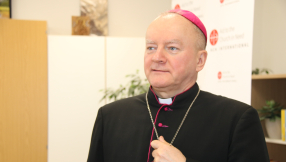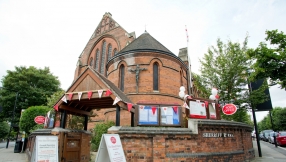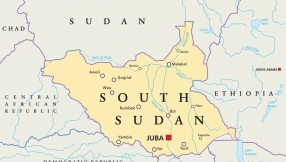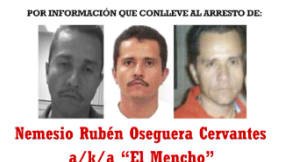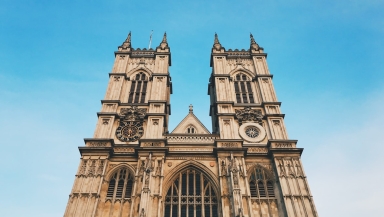
It's not often that the Church of England is talked about in the pub.
But the other day it was. And you know an Anglican issue is really cutting through in the public's mind when something is spontaneously raised in this way.
The matter highlighted was the C of E's apparent difficulty in defining a "woman". Or, at least, that is roughly how the subject was reported. Fox News headlined: "Church of England refuses to define the word 'woman." The Daily Mail said: "Church of England: What is a woman? We can't decide." There was other coverage in the Daily Telegraph, on LBC radio, and on TV stations GB News and Talk TV.
The issue hit the news after a question was asked in the church's Parliament, the General Synod, last week. Synod member Adam Kendry asked: "What is the Church of England's definition of a woman?"
In response, Robert Innes, the Bishop in Europe, said that "there is no official definition". He went on: "There is no official definition, which reflects the fact that until fairly recently definitions of this kind were thought to be self-evident, as reflected in the marriage liturgy."
He added: "The LLF project however has begun to explore the marriage complexities associated with gender identity and points to the need for additional care and thought to be given in understanding our commonalities and differences as people made in the image of God."
So – does it matter? The short answer to this is "no" ... but the slightly longer answer is "yes" ... Let me explain.
In the short term, it doesn't matter. Why? Well, the Church of England has no definition of a woman for precisely the same reason that almost certainly the church you currently attend doesn't have an official definition of a woman either. It might do – but I reckon that would be highly unusual. Has your PCC or team of Elders ever sat down and issued such a definition? I doubt it.
And the Church of England also has no definition of a woman for exactly the same reason that the conservative church groupings which some indignant commentators might hold up as paragons – for example, ACNA in the US, or the conservative Anglican Gafcon movement – don't have a definition either. (At least, when I googled, I couldn't find any).
The reason is simply this: a definition has never thus far in church history been needed. Everyone has known what a woman is – in other words, an adult human female. The church you attend probably doesn't have a definition of a woman any more than it has a definition of a child or a man or a table: in a nutshell, we all know without having to be told.
Saying (as the Bishop in Europe did) that there is no legal C of E definition is not quite the same as saying, "We don't know." And answering on behalf of the whole Church of England – rather than a purely personal capacity – the Bishop was not in a position to make up an official definition on the spur of the moment; that is not how things work.
But while all these things may explain and contextualise the lack of any official definition at this moment, that is not to say that the Church of England shouldn't be speaking up on this issue. For in the medium term, it does matter. With extreme transgenderist ideology being pushed (or more accurately forced) upon many sectors of society, in the face of a vehemently opposed public, the C of E does need to step up and give a Biblical, sane lead on this issue.
So far, it is not clear that it is capable of doing so. A few weeks ago Justin Welby was asked what a woman is, and this is the answer he gave: "A woman is someone who is sexually a woman, who is born and identifies as a woman or who has transitioned. There is a difference between how you identify a woman and how you ensure that trans people are valued and cared for in exactly the same way as every other human being. They're not less, they have their particular challenges, every human being has their particular challenges. But we can't get away from the science. We've got to start there."
That answer, as it reads at least, seems to me to be muddled. If you "start" with the "science" as Justin Welby stresses, then it seems difficult to end up with a definition of "woman" which includes (as he seems to) someone who has "transitioned." So there seems an inherent contradiction in this line of reasoning, if I understand it correctly. Perhaps he is differentiating sex and gender (as some do), but if so, that is not clear. And furthermore, to be honest, as Christians, don't we start with the Bible? It is interesting he doesn't even mention that in passing in his answer.
No wonder campaigner Maya Forstater (whose court case established that gender critical views are protected as a belief under the Equality Act 2010) told the Daily Mail after the Synod debate that the Church of England's long-established understanding – that it is fairly obvious what a woman is – "makes sense whether your starting point is biology or the Bible". She added that the C of E could not act "as if this fundamental truth did not matter".
It is time for the Church of England to stand up, speak up and give a lead on this issue – while being hugely pastorally kind to those who really struggle in this area. On this subject, at least, the bishops may even find they have the overwhelming majority of the British public being supportive of them.
David Baker is Contributing Editor to Christian Today and Senior Editor of Evangelicals Now, available at https://www.e-n.org.uk in print and online. Use the code Keswick22 to gain a 20% discount on the first year of a new full subscription (print and online) for the first year (offer expires 15<sup>th August). He writes here in a purely personal capacity.










